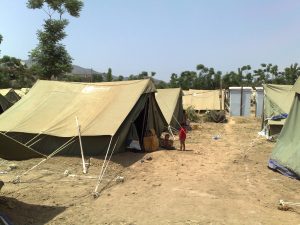On July 31, the Pakistan government issued an executive order to deport around 1.4 million registered Afghan refugees. These refugees were first issued what are called proof of registration (PoR) cards in 2006; their legal status continued to be renewed year after year until June 2025. Now they are being forced out of the country.
In addition to the PoR card holders, Pakistan hosts another around 700,000 Afghans in the category of Afghan Citizen Card (ACC) holders. These were undocumented Afghans residing in Pakistan who were registered in a drive initiated by the government of Pakistan in 2017.
Besides these two categories of registered Afghan residing in Pakistan, there are estimated to be hundreds of thousands of undocumented Afghans living in Pakistan, whose numbers could be as high as 1.7 million. The government of Pakistan has deported an estimated 1 million undocumented Afghans in around two years, starting in September 2023. More recently, however, it has extended the deportation campaign to registered Afghans. Pakistan initiated a drive to deport ACC holders earlier this year. The announcement on July 31 made PoR card holders the third, and perhaps the most important category, of Afghans to be subjected to deportation.
Prior to the announcement, recent improvement in relations between Afghanistan and Pakistan – reflected by a flurry of meetings between their respective high-level officials – had raised hopes that the PoR cards would be extended for another year. To the contrary, however, Pakistan’s Interior Minister Mohsin Naqvi gave a statement about the government’s decision to not extend the validity of PoR cards on the very day he met his Afghan counterpart, Sirajuddin Haqqani, in Kabul.
It might appear as if the refugee question is not high on the Taliban government’s priority agenda in its relationship with Pakistan. However, the Taliban government’s deputy minister for refugees and repatriation, Abdul Rehman Rashid, recently criticized not only Pakistan but also Iran for mass deportations of Afghans. Around 1.4 million Afghans have already been deported from Iran since the start of the year. Deportation remains a serious challenge for the Taliban government of Afghanistan, especially as multiple countries are pushing Afghans across the border at the same time.
Pakistani and Iranian officials justify the deportations by pointing to the decline in terrorist violence in Afghanistan, which is interpreted as the resumption of peace. Yet as Amina Azarm Nezami argued in a recent piece for The Diplomat, the Taliban’s “gender apartheid, the systematic persecution of minorities, widespread economic devastation, and the brutal targeting of anyone affiliated with the former government, Western institutions, or civil society” make refugee returns fraught with danger.
Iran and Pakistan have pushed hundreds of thousands of women into a country whose leader faces an arrest warrant from the International Criminal Court (ICC) for policies that deprive women of their fundamental rights.
To make matters worse, the international donor community’s response to the humanitarian emergency is not adequate. UNHCR, the United Nations’ refugee agency, asked for funding of $478.4 million from its donors in the year 2025 for Afghan refugees, but it has only received $116 million as of the end of June, leaving a funding gap $362.4 million (or 76 percent of its total stated requirement). Funding constraints are already impacting humanitarian assistance on the ground. The PoR-holding deportees used to receive $375 per family member from UNHCR upon their return to Afghanistan and then $700 per family after spending three months in Afghanistan. Due to the agency’s funding constraints, that amount has now been reduced to $140 per family with an additional $20 per family member to cover transport costs.
Similarly, the International Organization for Migration (IOM) has appealed for $500 million from its donors to provide food, temporary shelter, healthcare, and transportation assistance to around 2.5 million undocumented Afghans returning from Iran and Pakistan. So far, however, the agency has only received a little over $24 million for the monumental task at its hands, which barely covers approximately 5 percent of its stated funding needs.
Given the unprecedented spike in deportations that may put hundreds of thousands of returning refugees at the risk of severe food shortages, lack of shelter, and other humanitarian challenges, the U.N. might raise the estimate of its required funding for Afghanistan, which is far from being met already. Out of the $2.42 billion asked for by the United Nations for all its agencies for their work in Afghanistan, only $663 million in funding has actualized in 2025.
While the international community will need to work with U.N. agencies and the Taliban government of Afghanistan to meet the humanitarian needs of the returning refugees, the Taliban will also need to provide space for the U.N. and other humanitarian relief agencies to effectively work for meeting the needs of the refugees, especially the most vulnerable groups among them like women, children, the elderly, and the disabled.

































